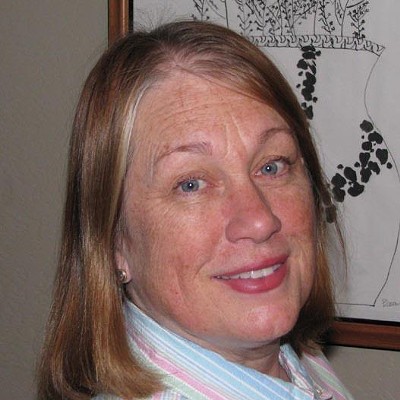Welcome back to Explicitly Graphic, a monthly column by Cynthia Clark Harvey (who's working on a graphic novel of her own). From time to time, Harvey will review graphic novels, talk to artists, and dive into the scene of all things explicitly graphic. Today, she sits down with author and artist Ellen Forney.
Ellen Forney's fifth book, Marbles: Mania, Depression, Michelangelo, & Me is her most personal yet. A previous book, Monkey Food, was also autobiographical, recounting happy childhood memories.
Marbles is Forney's recollection of being diagnosed bipolar at 30, her years-long struggle to find the right combination of medications, self-care and exercise, and what it means both personally and culturally to be a "crazy artist."
See also: - A Soldier's Daughter's Heart: A Conversation with Graphic Novelist Carol Tyler - Sketchy Stuff: A Resource Guide to Drawing Opportunities, Workshops, and Classes in Phoenix - Noteworthy Graphic Novels by Women: Recent, Upcoming, and One That I Cannot Friggin' Believe!
While Marbles has lots of humor and a sweetly engaging voice, some of Forney's memories are raw and painful to view. Still, Forney kept me rooting for her until the very last page when she announces, with a bathroom mirror self portrait, "I'm okay!" Forney and I spoke recently by phone about the book, mental health, and yoga.
I so enjoyed the book. Well maybe that's not the right word, because there is some difficult material in there. I appreciated the book. (laughs) No, I hope you did enjoy the book. I really wanted it to be readable, enjoyable and friendly.
I felt such relief at the end, when you say you're okay. I wondered if that was enough. Saying that I was relatively stable, not cured. There's not likely to be a cure in my lifetime. I'd taken this big journey, this big book and to just say I'm okay? But that's it. I'm okay.
You mentioned a cure. What would a cure look like? That's an interesting question. There's a huge variety of what healthy looks like in a particular individual. I think some mental health issues are over-diagnosed. People diagnose themselves with a mental disorder, then get medication from their general practitioner for their mental states.
I was struck by how much time and effort you, and your psychiatrist, took to get your medications to a place where they were effective, plus all the other things you did to make yourself as well as possible. In mental health treatment today, medication is primary, but there's so much else that can go into good treatment: talk therapy, exercise, getting enough sleep. It requires a much broader approach. It can mean changing your identity. The medication needs constant little tweaks, finding the right combination is hard. It's our brain! It's not like a toaster you can shake to get the crumbs out.
As the years have gone on, I've realized how lucky I've been to be working with the psychiatrist I have. One of her approaches is to be very conservative with [medication] dosages and increments. Our health care systems allow very few appointments, so doctors can tend to throw the largest possible dose of medication at something in hopes of curing it. It's overkill and dangerous. Big doses can increase side effects. Being in a fog for weeks is not good for attitude. I'm going to be taking medications the rest of my life, so it's important to find the right combination with the smallest dosages possible. It's tricky.
You were diagnosed bipolar at 30. Do you think you were bipolar at a younger age and undiagnosed or was it a later onset? I definitely experienced major recurrences of mood changes. I never had full-blown mania during adolescence. I had times, when I was foggy for long periods, when I felt like I could never wake up. It's difficult to remember what went on during those times. From college on, I had maybe mild instances of mania. It's hard to say. You tend to lose your appetite, then you lose weight, people say you look great, and you feel great and everything is great and it all just keeps adding to itself.
With this very personal book out, your first to be published by a big publisher, lots of advance publicity, many interviews and a book tour, do you feel secure about maintaining your health? I'm good. I've got so many tools. I know I can steady my boat. I can recognize when I need some help. From myself, to go meditate. From my support system or a meds adjustment. The short answer is yes.
After your diagnosis, you began a yoga practice and at one point considered becoming an instructor. I've heard more than a few people say that yoga helped them through depression. There are different images that have helped me. One of the things, when I was first diagnosed, the concept of balance seemed very boring. [With yoga] in a very literal way you need to balance. So I'm doing half-moon and I can believe in the value of both reaching out and using strength within at the same time. Balance.
From early in your practice, I love the image you drew of clouds of anxiety hanging over you during Shavasana, because I've had those heebie-jeebies while in that supposedly restful pose. Where? What page are you talking about?
Page 125. Oops, actually, you're in plank pose. And on the next page, as I'm in Shavasana, they're small and round. The other drawing is what I based the cover on.
I love that cover. I'm embarrassed that I just made that Shavasana image up to fit my own experience. Well that just makes it your book, too. I wanted that for people when they read it, that it becomes their book, too.











